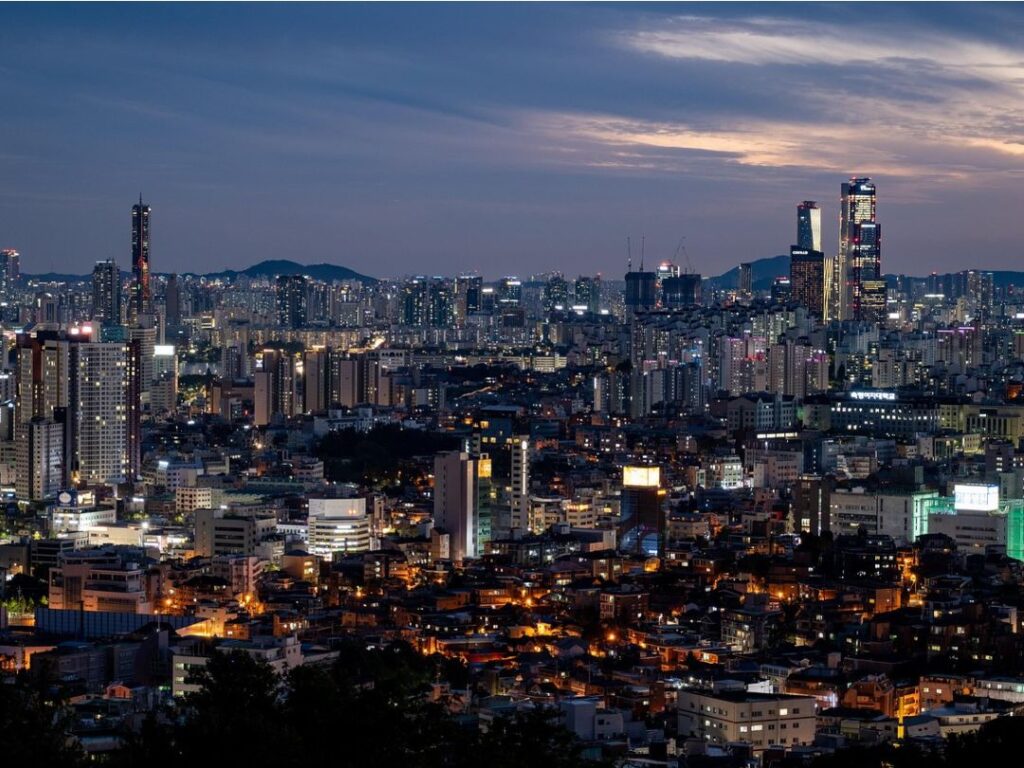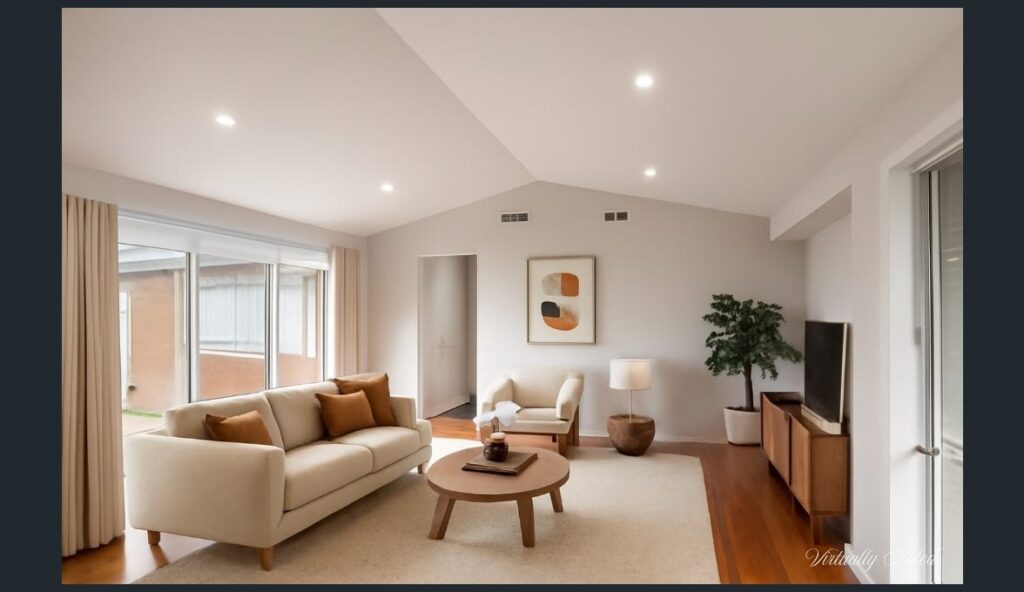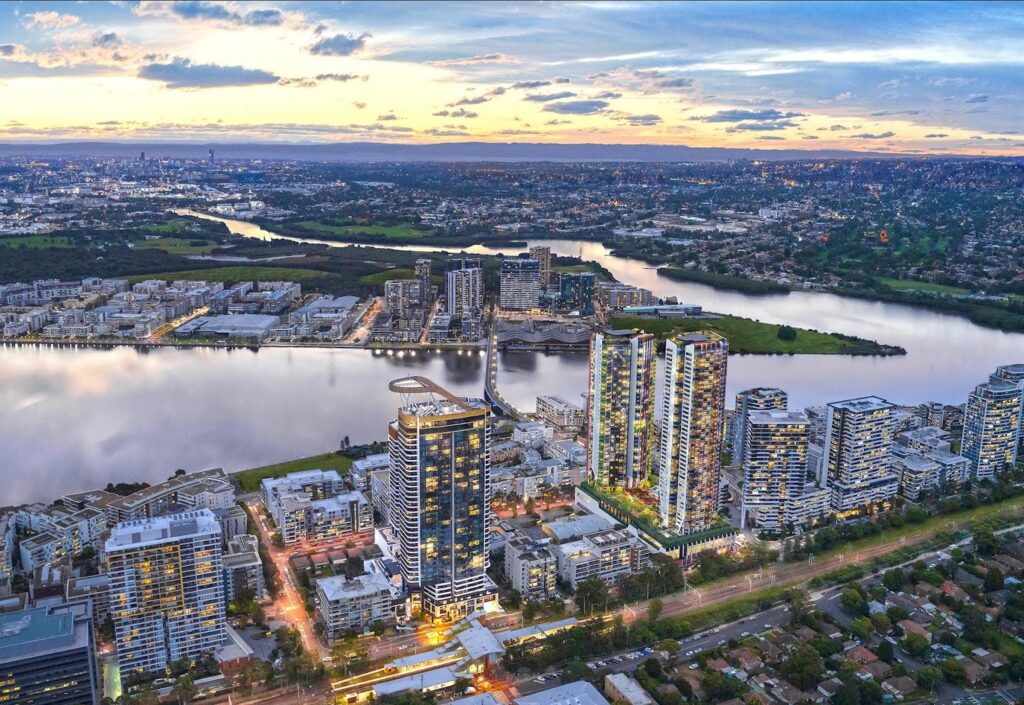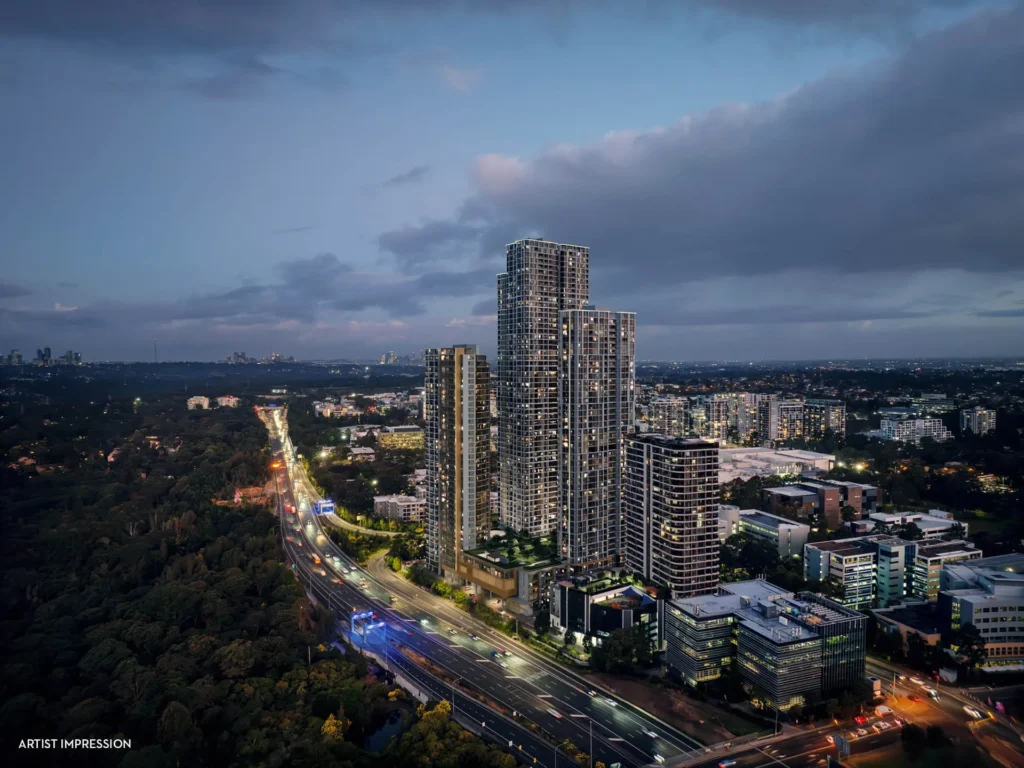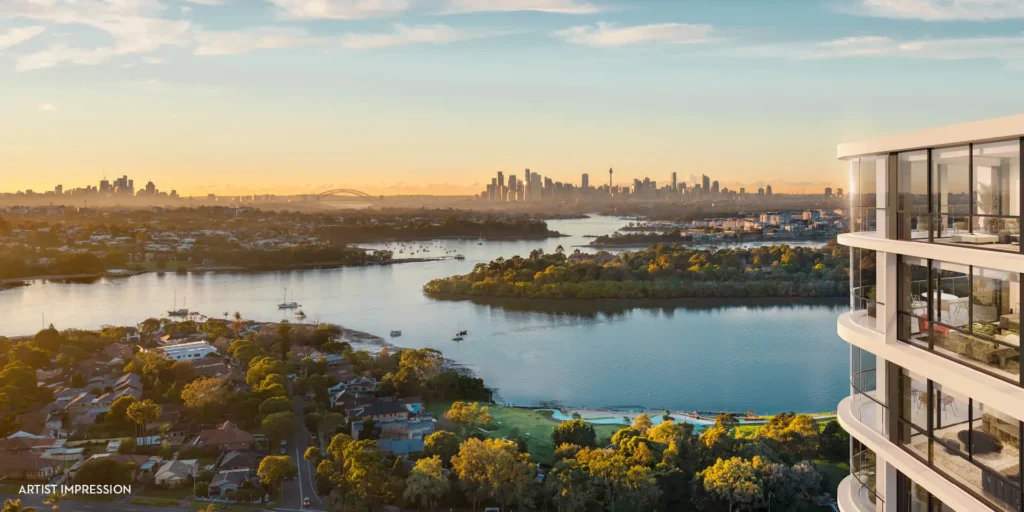Looking for a high-growth real estate market in 2025? South Korea’s property sector is on the rise, driven by innovative technologies, cultural influence, and government incentives. With cities like Seoul and Busan becoming international hubs, it’s no wonder why savvy investors are setting their sights on this dynamic market. Here’s why 2025 could be the perfect time for you to join them.
South Korea real estate is attracting investors worldwide, with 2025 set to be a key year for growth. Investors from Australia will find South Korea appealing for its stable returns. This guide explains how South Korea real estate offers a mix of innovation, cultural charm, and government support.
Realestate2c’s research shows South Korea’s property market is boosted by tech, digital nomads, and tax benefits. Cities like Seoul and Busan lead the way, combining tradition with modernity. This attracts both short-term and long-term investors.
Key Takeaways
- Foreign-friendly policies are reducing barriers for international buyers in real estate south korea.
- Smart home technologies and sustainable designs are driving demand in urban and suburban areas.
- Rental yields in cities like Seoul remain competitive compared to mature markets like Australia.
- Government incentives for green building projects enhance long-term asset value appreciation.
- Cultural tourism and K-pop’s global influence boost demand in entertainment and cultural districts.
The Current Landscape of South Korea Real Estate
South Korea real estate has changed a lot in the last ten years. Experts at Realestate2c say there’s been a big jump in both homes and business spaces. This is thanks to more people moving to cities and government projects.
Places like Seoul have seen prices go up steadily. But, new cities are also good for investors because they are cheaper.
Market Performance Over the Past Decade
Real estate in South Korea has grown by 45% nationwide from 2015. In Seoul, areas like Gangnam have seen returns over 8% a year. Commercial spaces, like in tech cities like Daejeon, have also done well.
This growth is because of more people moving and government projects to improve areas.
Regional Hotspots: Seoul, Busan, and Emerging Cities
Seoul is the biggest market, with 22% of all real estate deals. Busan’s coastal areas are becoming more popular because of tourism. Incheon, near the airport, has seen prices go up by 15%.
Daejeon’s growing tech scene is making mixed-use developments more sought after.
Price Trends and Forecasts for 2025
Right now, apartment prices in Seoul are going up by 6% each year. Realestate2c thinks this trend will keep going in 2025. They also believe that investing in secondary cities will become more profitable.
Things like tax breaks and easier rules for foreign buyers are making it more attractive. Busan’s coast and Incheon’s special economic zones are seen as the best places to invest.
Smart and Sustainable Homes: The Future-Proof Investment
Investors in South Korea are looking for homes that are smart and green. These homes use the latest technology and care for the environment. They have AI for controlling the climate, energy-saving gadgets, and can connect to the internet.
Properties with solar panels, systems for recycling rainwater, and materials that don’t harm the planet are in demand. They attract more renters and sell quickly.
South Korea is at the forefront of smart home technology, with 68% of new homes in Seoul having AI systems. Buildings in Busan and Daegu are now energy-efficient, meeting international standards. This cuts down on energy bills by up to 40%.
Most millennials, 73% of them, want homes that are good for the planet, according to a 2024 survey. This shows a big shift towards eco-friendly living.
Properties with smart security and renewable energy options sell for 15-20% more, says Realestate2c. In Seoul’s Gangnam district and Gwanggyo New Town, green condos sell 30% faster than others. This is because they have automated systems for energy use, found in 85% of new homes.
There are tax breaks for green buildings and smart homes. This makes them more valuable in the long run. Investors should look for homes that meet government standards for sustainability. These homes are not just good for the planet but also save money.
Here are five large investment companies that have been actively investing in South Korea real estate market:
- Blackstone Group
Blackstone, one of the world’s largest real estate investment firms, has been a major player in South Korea’s property market, making investments in commercial and residential properties, particularly in Seoul and other major cities. - Brookfield Asset Management
Brookfield has been investing in South Korea real estate for several years, with a focus on office buildings, mixed-use developments, and residential properties. They have a strong presence in the Asian real estate market. - The Carlyle Group
Carlyle has made significant investments in South Korea, particularly in the commercial real estate sector. Their investments span across office spaces, retail, and residential properties, taking advantage of the growing demand in South Korea’s urban areas. - LaSalle Investment Management
A global leader in real estate investment management, LaSalle has been active in South Korea real estate market, focusing on both commercial and residential properties. They focus on high-growth areas, especially those benefiting from infrastructure development. - KKR & Co.
KKR has made strategic investments in South Korea real estate, including office buildings and mixed-use properties. Their investment in South Korea real estate is driven by the country’s economic growth, urbanization trends, and favorable investment conditions.
These firms are tapping into South Korea’s strong economic growth, infrastructure projects, and demand for both residential and commercial properties, positioning themselves for long-term returns.
Digital Nomad Revolution: How New Visa Policies Are Transforming Rental Markets
South Korea’s visa changes are changing the real estate scene. New visas for digital nomads and entrepreneurs are drawing in remote workers from around the world. This is making real estate in South Korea more popular.
Cities like Seoul and Busan are becoming favourites for expats looking for affordable, modern homes. This increased interest is leading to new types of rentals, such as co-living spaces and serviced apartments.
Remote work communities are growing in areas like Seoul’s Gangnam and Itaewon. These places offer fast internet, cultural experiences, and connections with other expats. They are becoming popular for long-term rentals.
Investors are seeing a rise in demand for properties near public transport. Yields have gone up by 8-12% in key areas, starting from 2024.
Remote Work Communities Take Root
Now, 15% of Seoul’s new rental deals are with foreign professionals, according to Realestate2c. These tenants want modern features and flexible lease options. This is making landlords change their approach.
Serviced apartments with shared workspaces are becoming more common. They meet the needs of digital nomads.
Popular Neighbourhoods for Global Talent
Busan’s Haeundae and Daegu’s tech areas are becoming as attractive as Seoul for their prices. Investors should look at these places for growth, with rental values increasing by 9% in 2024. Properties near universities and innovation zones are in high demand.
Rental Yields and Future Trends
Experts predict a 6-10% annual yield increase in areas popular with nomads by 2025. Easier visa rules could lead to even more demand. Investors who keep up with these changes will have an advantage in South Korea’s rental market.
Government Housing Initiatives and Tax Benefits in 2025
South Korea’s government is making it easier for global investors to buy real estate. They’ve introduced tax breaks and relaxed rules. This makes it more appealing for overseas buyers to invest in South Korea real estate market.
New Tax Incentives for Foreign Investors
Foreign buyers can now pay less capital gains tax if they hold properties for five years. Commercial real estate gets more tax benefits, with special zones giving 15% tax credits. These changes aim to increase investment in less developed areas.
It’s important for investors to get advice from certified experts. This way, they can make the most of these benefits without running into trouble with residency rules.
Reduced Regulations in Key Development Zones
Places like Incheon Free Economic Area and Busan New Port District have easier land buying rules. Foreigners can now buy land here with less paperwork, saving 40% on approval times. Seoul’s Mapo and Gangnam districts also have new rules to speed up development.
Navigating the Tax Structure
Australian investors need to understand South Korea’s complex tax system. There are different taxes for buying and owning property. But, long-term investors can avoid some taxes.
It’s key to use tax treaties to avoid double taxation. This ensures you follow the rules of both countries.
Infrastructure Development and Its Impact on Property Values
Infrastructure upgrades in south korea real estate are changing the game for investors. New high-speed rail links and smart city projects are boosting growth in areas outside Seoul and Busan. For example, the KTX railway extensions have increased land prices by up to 25% in nearby areas, as shown by Realestate2c data.
Urban renewal zones near transport hubs are now seeing some of the strongest returns in south korea real estate.
Smart cities like Songdo and Sejong are leading this change. They combine advanced technology with green design. Songdo, with its automated waste systems and 5G networks, attracts tech companies and global investors.
Sejong, backed by the government, promises long-term value as it becomes a hub for administrative jobs, drawing in residents.
Investors do best by getting in early on project announcements. Property values near announced rail lines can rise by an average 12% before construction starts. Projects like the Busan-Gwangju high-speed corridor show how being close to new infrastructure boosts real estate growth.
Government maps and timelines for these projects are now essential for spotting new markets.
There are risks, like delays or oversupply in areas where projects are speculative. But, investing in mixed-use zones with confirmed funding can reduce these risks. Australian buyers should focus on areas where infrastructure matches tech, transport, and housing demand trends.
The Cultural Influence: K-Pop, K-Drama and Real Estate Investment Opportunities
K-Pop and K-Drama have made South Korea’s cultural spots hot for real estate investors. Places like Gangnam and Itaewon, where stars often hang out, see property prices soar. Realestate2c says areas linked to TV shows or music get 15% more rental interest every year.
Neighbourhoods famous for celebrities are not just for living. They’re also great for business. For example, cafes near K-Drama shoots get high rents because of fans. Hongdae, known for its lively music and nightlife, has turned old offices into event spaces, making it a hit for commercial real estate.
Areas like Seoul’s Insadong, where old crafts meet modern art, draw tourists and investors. These spots see steady interest from foreign buyers and local businesses. But, investors need to watch tourism trends and local laws to avoid overpaying.
New cultural zones, like those near entertainment spots, offer early chances to invest. Being close to filming or concert venues can hint at future growth. Australian investors should look for areas with good infrastructure and cultural appeal for lasting real estate success.
By balancing cultural trends with market facts, South Korea real estate stays exciting for global investors.
Why Foreign Investors Find South Korea Real Estate Market Attractive
South Korea real estate market is a hit with global investors. It has a strong legal system and clear market rules. For Aussies, buying property is easier thanks to bilingual legal help and management firms.
Recent changes have made it easier for foreign investors. This makes South Korea a prime spot for cross-border deals.
Realestate2c data shows South Korea leads in property rights and financing. Foreign buyers get tax breaks and property managers handle local rules. Big banks like Shinhan and KDB offer loans for international buyers, making it easier to finance.
Seoul and Busan have strong resale markets. Investors love the political stability and low crime rates. They also manage currency risks by timing their purchases well.
Thanks to global market links, investors can quickly check price trends. The tech in South Korea, from digital platforms to AI valuations, helps make smart choices. This mix of safety, chance, and innovation makes South Korea real estate a key entry point for Asia-Pacific growth.
Conclusion: Making Your Move into the South Korean Property Market
South Korea real estate market in 2025 is a great chance for Australian investors. The use of smart home tech, digital nomad needs, and tax breaks make it a solid choice. Upgrades to infrastructure and K-pop’s popularity also increase property values, giving investors many options.
Investors should do their homework and work with local experts. Team up with licensed agents and get financing from banks like KB Kookmin or Shinhan. Knowing about taxes and visa rules for digital nomads helps avoid problems and boosts profits. South Korea’s easy rules for foreign buyers make it easier to get into the market.
Some might worry about cultural differences or legal issues. But, with the right plan, these concerns can be overcome. The 2025 outlook, with tax changes and growing global interest, is a great time to invest in South Korea. Whether it’s Seoul’s tech areas or Busan’s tourism growth, there are many opportunities. A year to plan and prepare is enough to get everything ready before diving in.
FAQ
What are the main benefits of investing in South Korea real estate in 2025?
Investing in South Korea real estate in 2025 has many advantages. The market welcomes foreign investors, offers tax breaks, and sees a surge in demand for smart homes. Realestate2c highlights government support, tech advancements, and positive demographics as key factors.
Which regions in South Korea are currently the best for property investments?
Seoul, Busan, and cities like Incheon and Daejeon are top choices for property investments. Each area has its own growth trends and opportunities. Premium markets like Gangnam and areas with new infrastructure are also promising.
How is the demand for smart and sustainable homes influencing the property market?
The demand for smart, eco-friendly homes is changing the market. Properties with AI and energy-saving features are in high demand. This trend is boosting property values and attracting quality tenants.
How are new visa policies affecting the rental market in South Korea?
New visa policies, like digital nomad visas, are changing the rental market. They attract remote workers and entrepreneurs from abroad. This has increased demand for rentals in new areas, making them attractive for investors.
What government incentives should foreign investors be aware of in 2025?
Foreign investors can benefit from government housing initiatives. These include tax breaks, reduced regulations, and easier property buying. Knowing the local tax system and using these incentives can improve investment returns.
How does infrastructure development impact property values?
Infrastructure growth, like new rail links and smart city projects, boosts property values. Properties near these projects see higher demand and value. This makes them strategic investment choices.
What role do cultural influences like K-Pop and K-Drama play in real estate investment?
K-Pop and K-Drama have a big impact on property investments. Areas linked to celebrity culture are in high demand. This is due to tourism and lifestyle amenities tied to these trends.
What strategies can foreign investors use to navigate the South Korean property market?
Foreign investors should use bilingual legal advisors and property managers. They should also understand the tax system and keep up with market trends. Building local connections and doing thorough research are key strategies.

